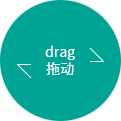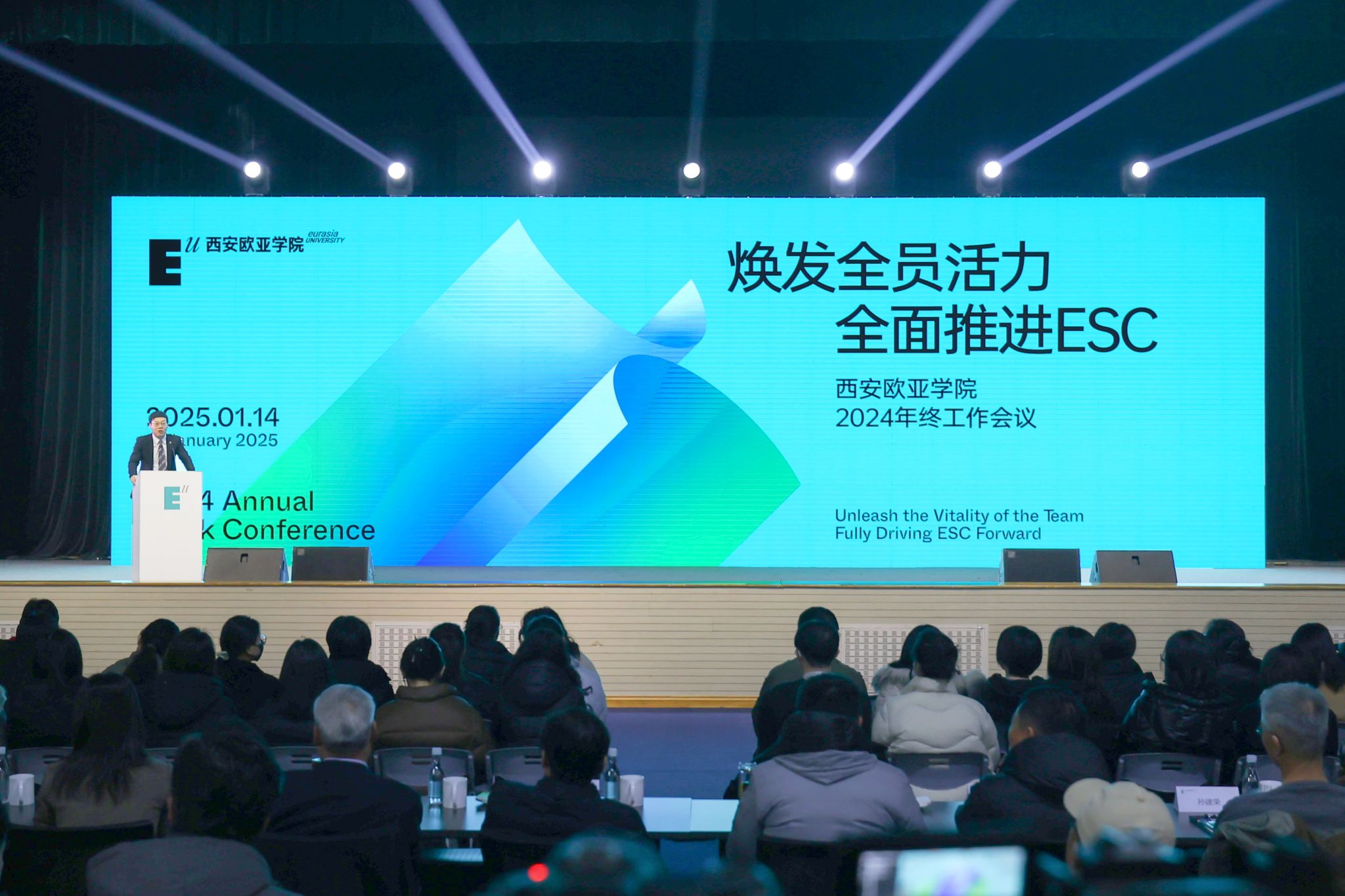
(Fig. 1) Xi'an Eurasia University 2024 Year-End Work Conference Scene
With the universalization of higher education in China, the number and scale of universities have continually expanded, and the types and levels have become increasingly diverse, showing a trend of diversification. Facing the new tasks and requirements of "accelerating the development of a strong education nation and a high-quality education system," universities of different types need to further clarify their positioning and enhance their connotation, level, quality, and characteristics to achieve "first-class" at different levels and in different fields, based on the significant mission of higher education.
Since its establishment, Xi'an Eurasia University has consistently been a leader and pioneer in educational reform and innovation. The university is committed to creating a student-centered, future-oriented education system, focusing on cultivating high-quality talent with an international perspective, innovative ability, and a sense of social responsibility. It actively explores disciplines and programs that closely align with industry demands. By deepening the integration of industry and education and strengthening school-enterprise cooperation, Xi'an Eurasia University has not only improved the quality of education but also created broader employment and development opportunities for students. Regarding how to strengthen innovation-driven development in the future and comprehensively improve the quality of education while continuously advancing on the path of building an innovative university, Xi'an Eurasia University has provided its own answers.
On January 14, 2025, the 2024 Year-End Work Conference of Xi'an Eurasia University was held in its gymnasium. The conference, themed "Inspiring the Vitality of All Staff and Comprehensively Promoting ESC," reviewed the work completed in 2024 and clarified the key work and development goals for 2025. All faculty and staff of the university, as well as experts and advisors at both the university and school levels, attended the conference, along with the following invited guests: Professor Lu Bainian, General Advisor at the Innovative Design Thinking (China) Institute and Special Advisor to Peking University and Tsinghua University; Professor Li Sen, Dean of the Faculty of Education at Shaanxi Normal University, Executive Vice President of the Shaanxi Institute for Teacher Development, and Chief Expert of a major project of the National Social Science Fund of China; Professor Zhao Dan, Doctoral Supervisor at the Faculty of Education of Shaanxi Normal University, Deputy Director of the Labor and Technology Education Work Committee of the China Wisdom Engineering Association, and Project Review Expert of the National Natural Science Foundation of China; and He Jinge, Deputy Dean of Xi'an Daxing Hospital. The conference was chaired by Vice President Li Zheng of the university.
Work Report
Quality Assurance Provides Guidelines and Innovation Drives Future Development
The year 2024 was designated as the "Year of Improving Educational Quality" at Xi'an Eurasia University, with the annual theme of "Effectively Enhancing Classroom Efficiency and Promoting All-Round Student Development." In the first half of the year, the university successfully completed the undergraduate education and teaching evaluation. The university's student-centered educational system was recognized by the Ministry of Education as a characteristic case. In the second half of the year, the university fully implemented the "employer-oriented and student-centered" reform of the talent cultivation model, promoting high-quality and distinctive development in education and teaching.
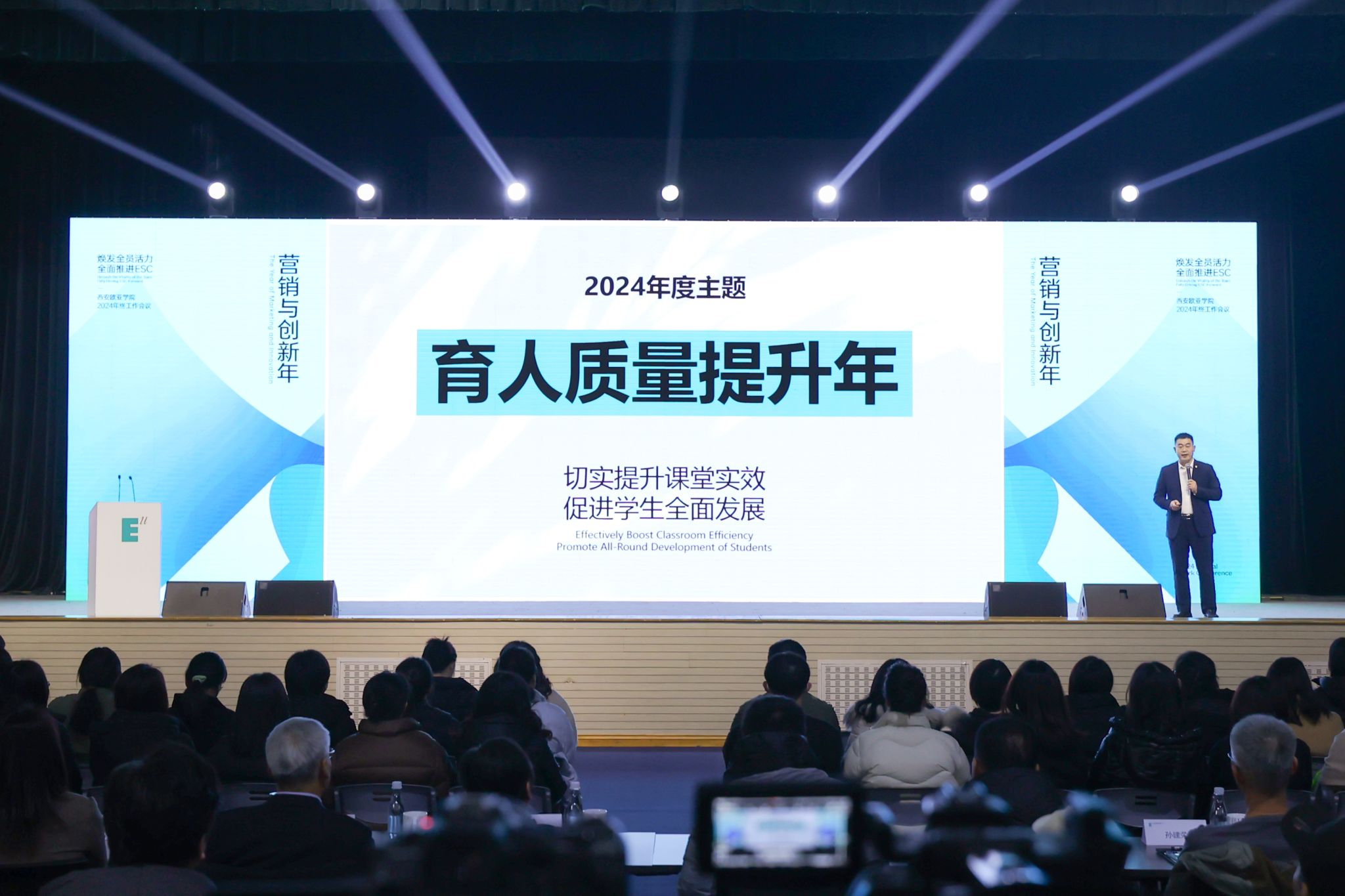
(Fig. 2) Zhao Junjing, Assistant to the President of Xi'an Eurasia University, Delivers a Work Report for 2024
Zhao Junjing, Assistant to the President of Xi'an Eurasia University, delivered the 2024 work report on behalf of the Performance Budget Committee. The report pointed out that in 2024, the university effectively implemented the upgrade and reform of the talent cultivation model in classroom teaching, and the annual theme was fully reflected at all levels: The talent cultivation plan was revised; the "school-community-clubs" collaborative education model was put into practice; the "local internationalization" development strategy was continuously strengthened; organized research units (ORU) were effectively advanced; the incentive mechanism for sharing and cross-integration of scientific research and social service resources was further improved; the SC teacher training and certification system was implemented at an accelerated pace; a multi-dimensional brand communication network was well-established; intelligent application scenarios for new forms of education were gradually realized; AI applications covered the entire teaching process; the strategic management system was gradually improved; the internal governance under the committee system achieved remarkable results; and projects such as the renovation of the Student Service Center in West District, the Students Activity Center, the Dining Hall in North Block C, and the EU Hotel were carried out in an orderly manner.
The year 2025 is designated as the "Year of Marketing and Innovation" at Xi'an Eurasia University. The university will focus on six strategic priorities and key breakthrough points, aiming to enhance the effectiveness of education, promote balanced governance, effectively improve the cultivation of applied talent, steadily advance disciplinary development, continuously drive high-quality local internationalization, multi-dimensionally enhance environmental and cultural construction, deeply promote talent and organizational development, solidly promote process construction and digital transformation, continuously improve the strategic management mechanism, comprehensively promote law-based governance of the university, and strengthen Party building to safeguard the high-quality development of the university.
Themed Sharing
"Employer-Oriented and Student-Centered" Transformation of the Educational Paradigm
In 2024, the university fully mobilized and gave play to the enthusiasm of the "leaders" in front-line teaching management and support. In aspects such as program construction, case-based teaching, and project-based teaching, talent cultivation was effectively promoted, achieving remarkable results. During the sharing session of this conference, the "leaders" from the schools in the university shared relevant cases regarding program construction, case-based teaching, and project-based teaching, respectively.
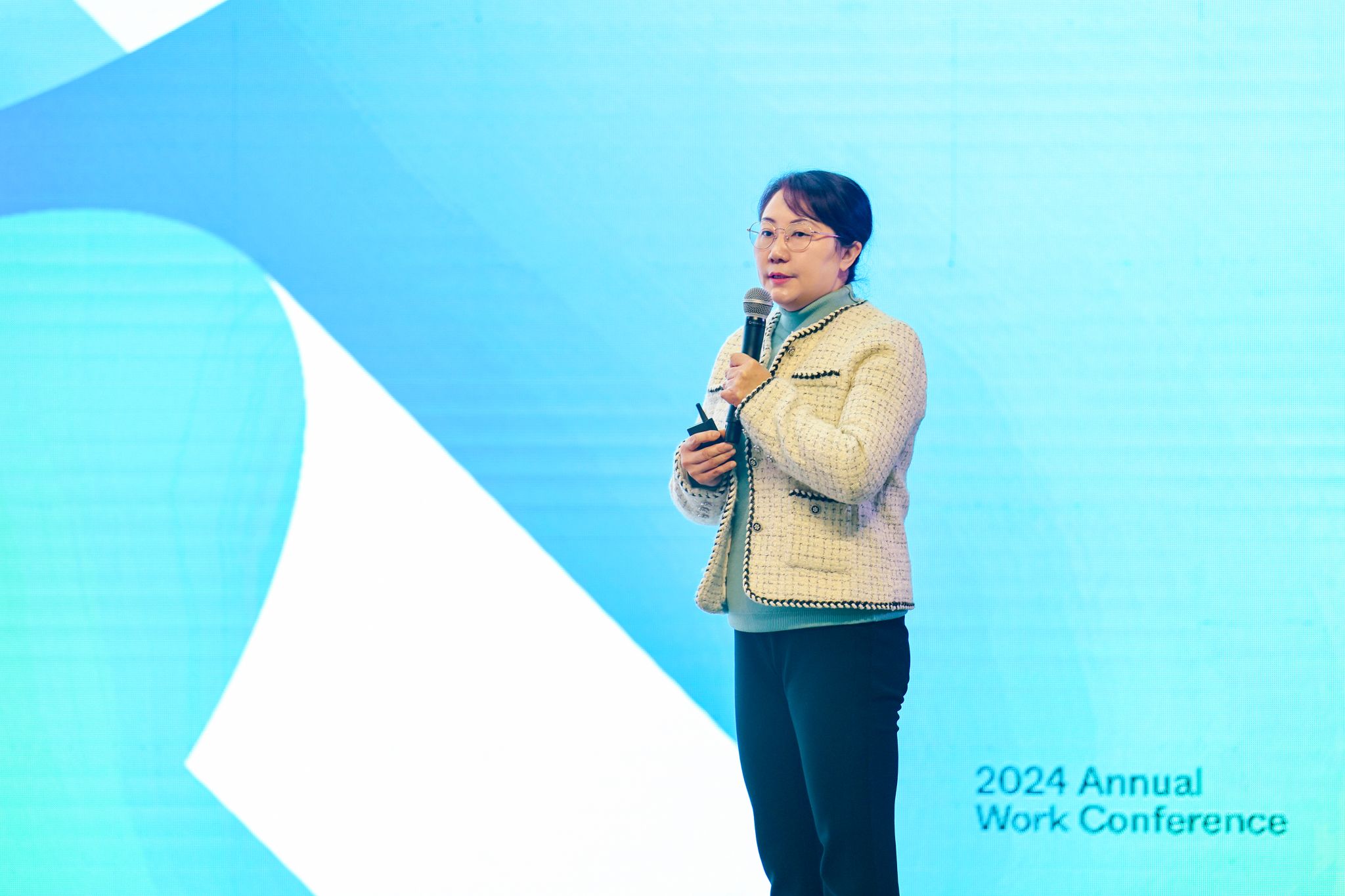
(Fig. 3) Zhou Dehui, Leader of the Finance Program at the School of Accounting and Finance, Gives a Keynote Presentation Titled "The Road to Transformation: The Future Development of the Finance Program Under the Program Leader System"
In the context of an economic downturn and a general cooling of professional fields, various programs at the university have encountered difficulties and challenges to varying degrees. In this context, the university proposed an employer-oriented, student-centered approach, with program leaders taking the initiative in the development of their work units to fully promote the transformation and development of each program. Zhou Dehui, the leader of the Finance program at the School of Accounting and Finance, gave a keynote speech titled "The Road to Transformation: The Future Development of the Finance Program Under the Program Leader System." She talked about how the program team, facing difficulties and challenges and guided by the program leader system, actively explored and learned. Through benchmark research and learning from experiences, the team took effective measures in talent cultivation, curriculum optimization, and school-enterprise cooperation. Zhou Dehui proposed "seven transformations," including changing the direction, layout, curriculum system, cultivation mode, enrollment strategy, employment approach, and the team, to boost the transformation and rebirth of the Finance program and break through the predicament.
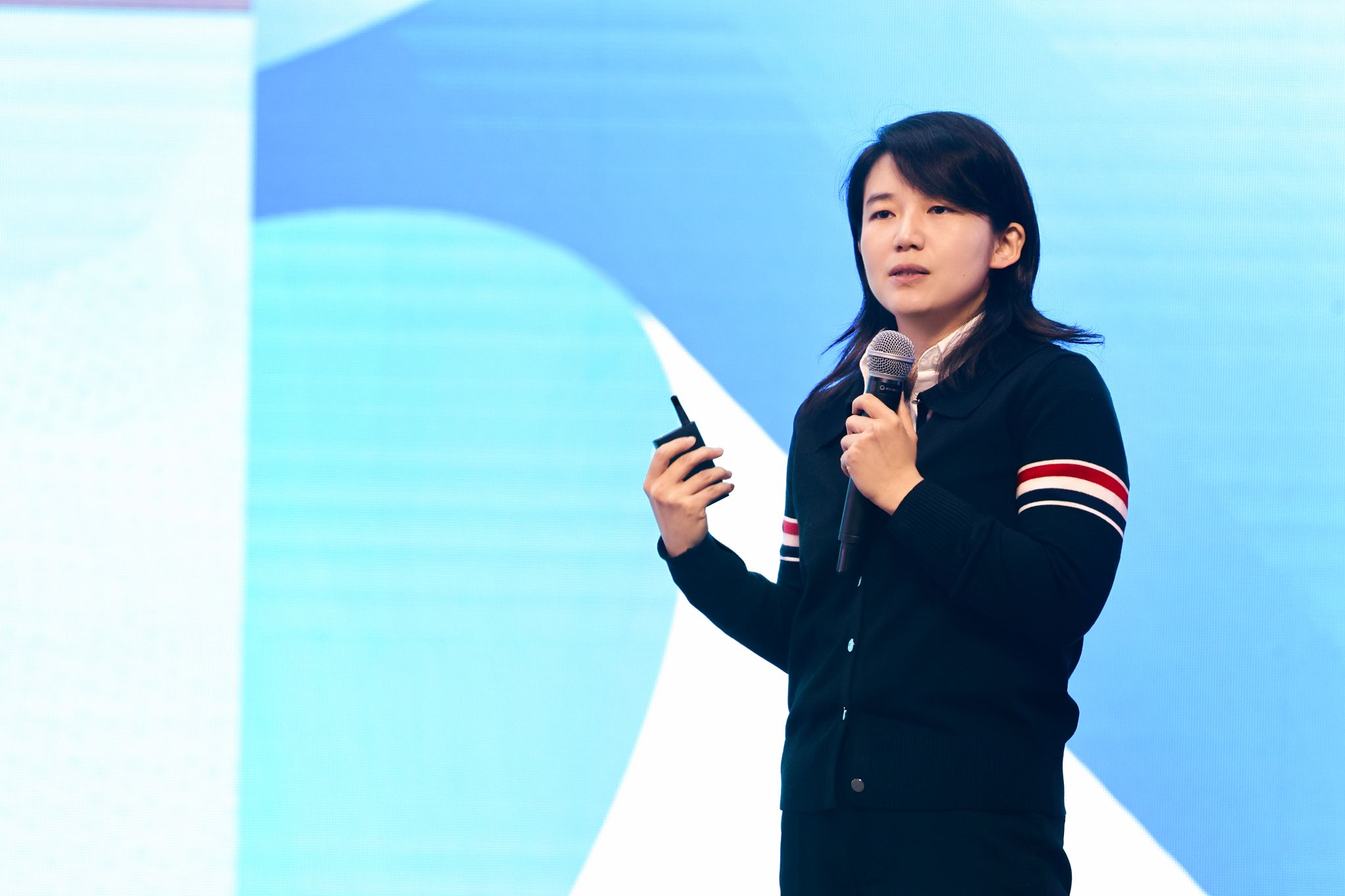
(Fig. 4) Wang Qian, Leader of Case-Based Teaching at the School of Business Administration, Delivers a Themed Presentation titled "Case-Based Teaching: The Employer-Oriented Path to Business Education Innovation"
In her themed presentation "Case-Based Teaching: The Employer-Oriented Path to Business Education Innovation," Wang Qian, Leader of Case-Based Teaching at the School of Business Administration, mentioned that against the backdrop of continuous innovation in business education, the case-based teaching method, with its exceptional practicality and high degree of goal orientation, has become the core driving force behind the paradigm shift in business education. The school, focusing on employer demands, actively has explored new paths for teaching reform and has established a case-based teaching system closely aligned with the actual needs of employers. By bringing real business scenarios into the classroom, it aims to cultivate high-quality business professionals who can quickly adapt to the workplace and meet employer expectations.
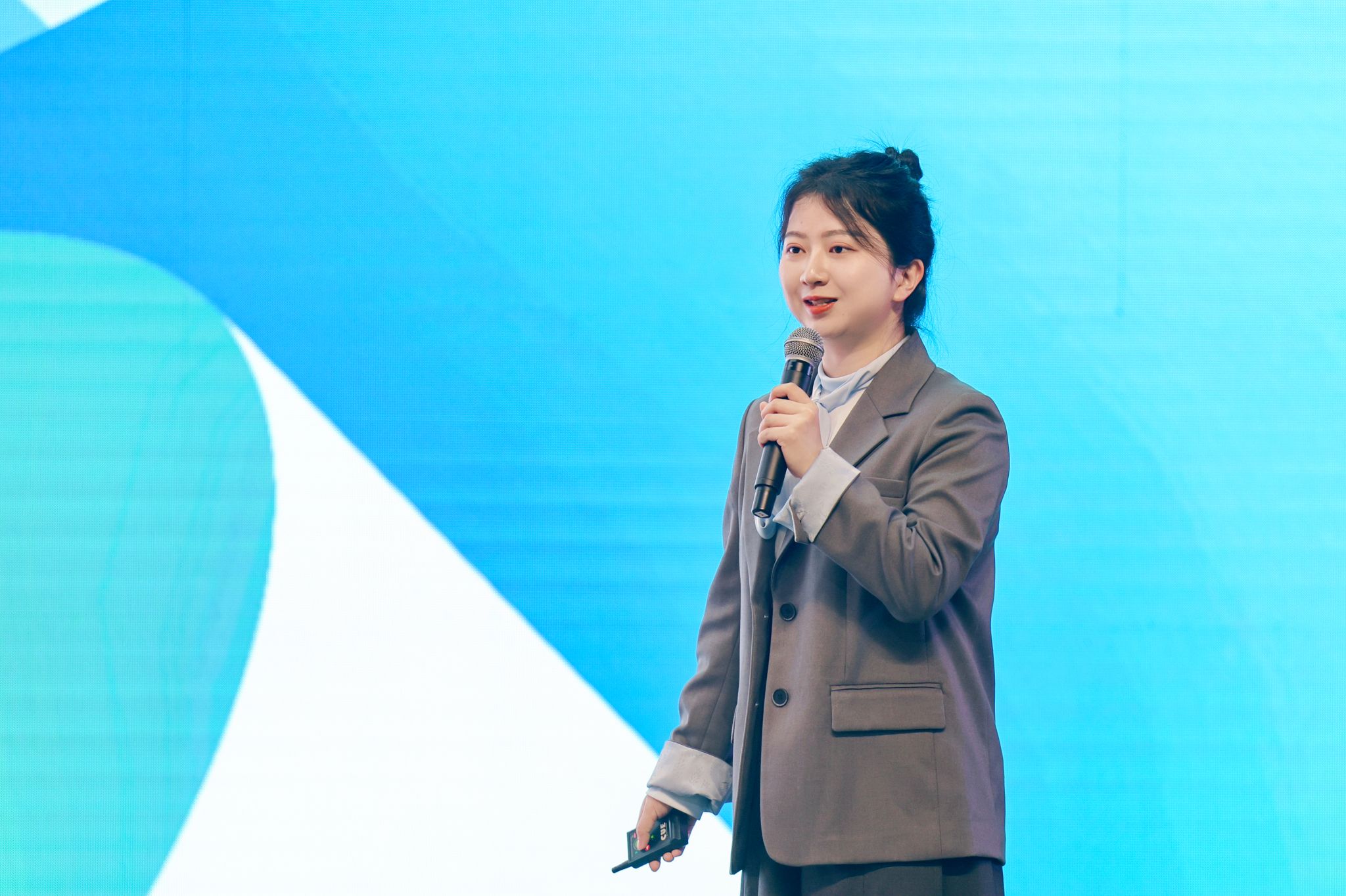
(Fig. 5) Luo Wei, Leader of Project-Based Teaching at the School of Human Settlements and Civil Engineering, Gives a Themed Presentation Titled "Growing Through Doing: A 'Soil-Filled' Project Journey"
Project-based teaching is the main approach for cultivating applied talent in the new engineering fields in Xi'an Eurasia University. In 2024, the School of Human Settlements and Civil Engineering, starting from employer needs, collaborated with enterprises to carry out a project-based practice related to "soil." Luo Wei, Leader of Project-Based Teaching at the School of Human Settlements and Civil Engineering, gave a detailed introduction to the practice of project-based teaching in engineering with the topic "Growing Through Doing: A 'Soil-Filled' Project Journey," covering aspects such as "Where do projects come from" and "How are projects executed." Through real-world enterprise projects, the course team established connections between courses and reconstructed teaching content. Based on "soil" and taking "ramming" as an art form, they had an in-depth dialogue on "soil," enabling teachers and students to discover, perceive, and create beauty, and truly experience the charm of education.
Keynote Reports
Innovation Has Always Been Part of Xi'an Eurasia University's DNA
In 2025, the university's annual theme is "Year of Marketing and Innovation." How to understand marketing? how to carry out innovation and stimulate the innovative thinking of teachers, students, and staff to enhance everyone's marketing and innovation capabilities? The conference meticulously designed three sessions to share values and cultural insights, aiming to foster innovative thinking among all and support the university's innovative development.
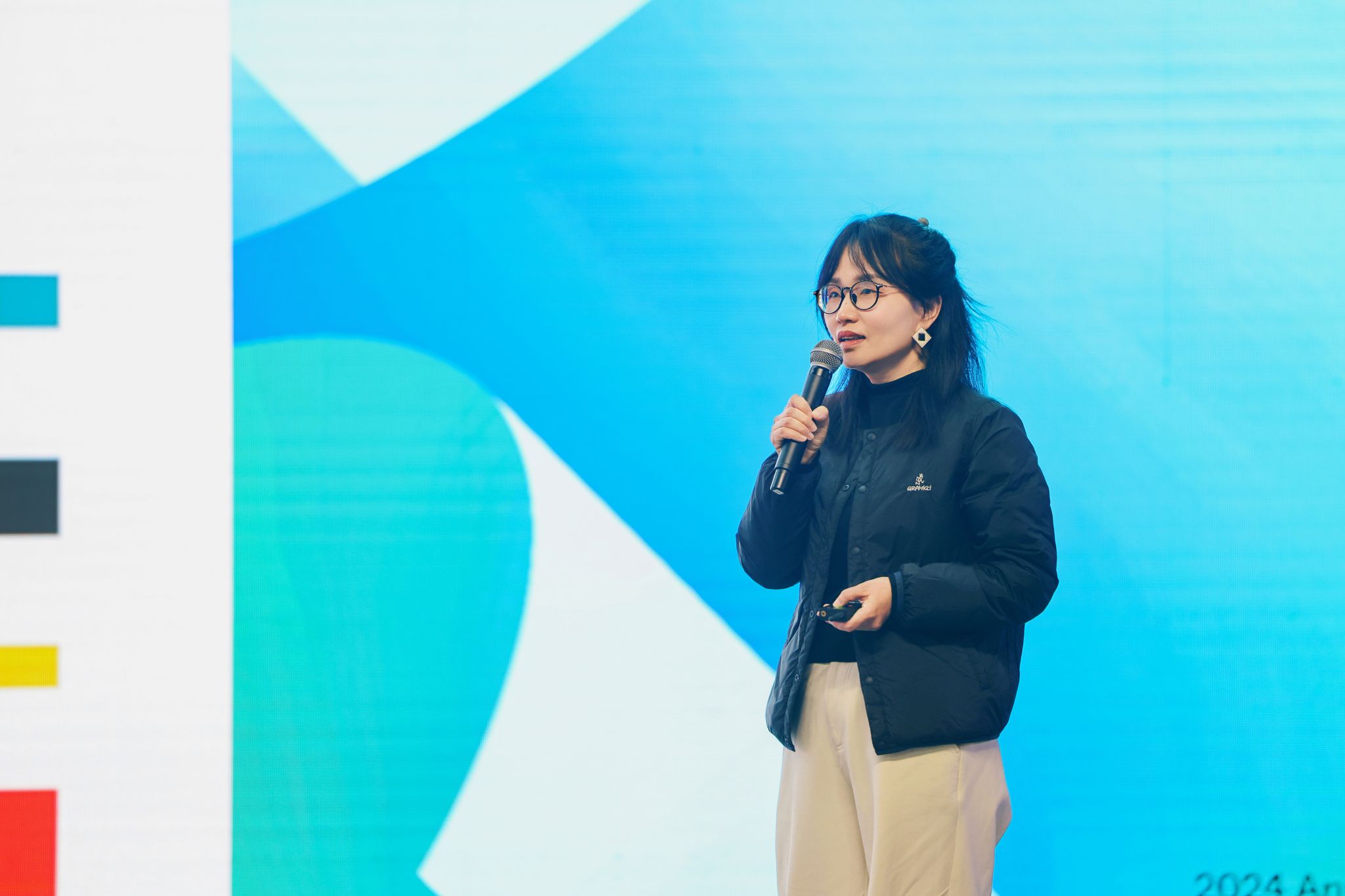
(Fig. 6) Zhang Yuanyuan, Director of the Brand Communication Department, Presents the Report Titled "The Answer Comes from the Future, but the Action is Now"
In the themed report "The Answer Comes from the Future, but the Action is Now," Director Zhang Yuanyuan of the Brand Communication Department shared her macro-level observations of the era, the development trends of higher education, and practical cases of global innovative universities. She stated, "Only by clearly understanding the future development and our current environment can we accurately find our own position and actively participate in shaping the future. Innovation has always been the core essence of Xi'an Eurasia University and an inexhaustible driving force for Xi'an Eurasia University to become an innovative university."
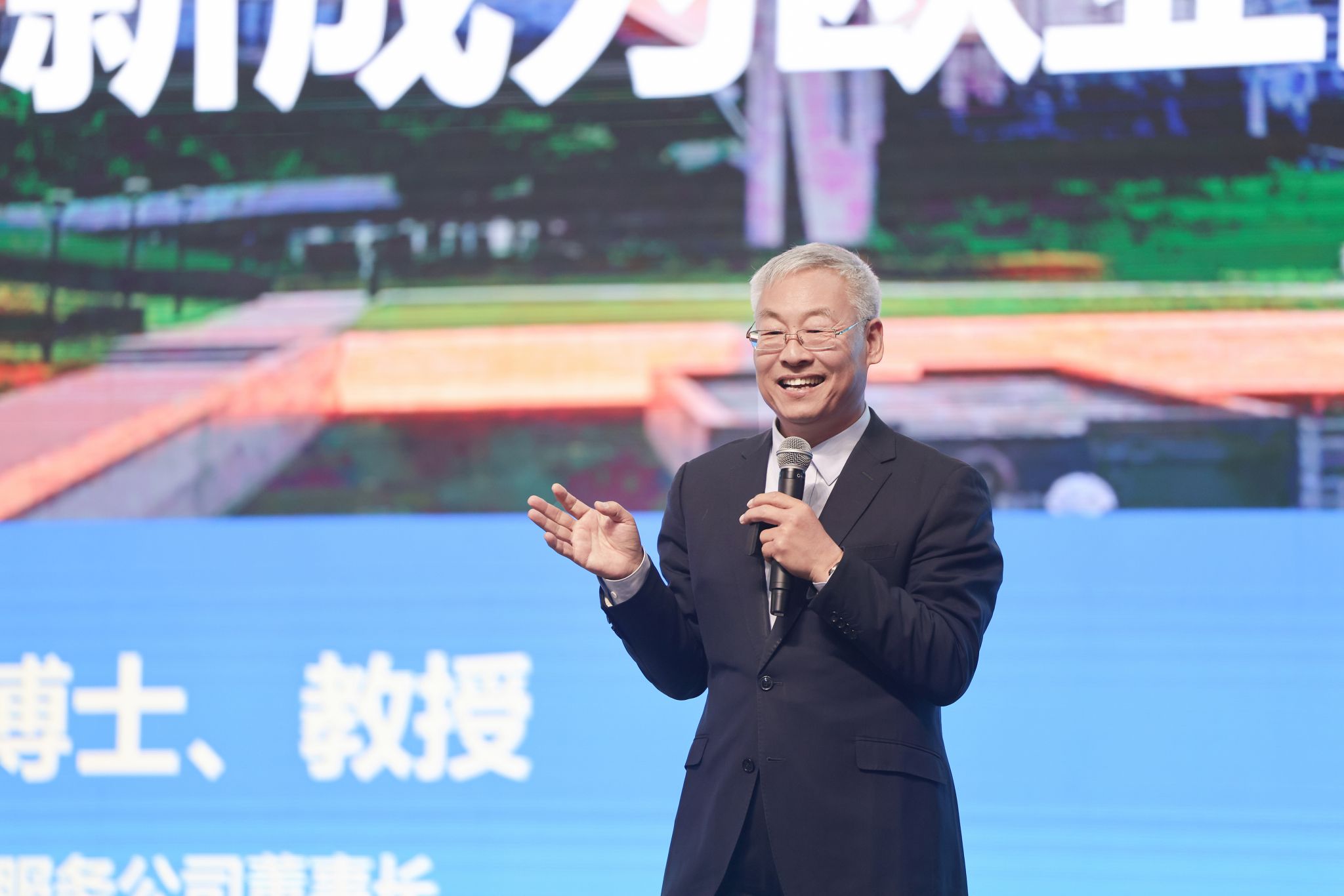
(Fig. 7) Professor Lupai Nian, Senior Special Advisor to Xi'an Eurasia University, Delivers a Keynote Speech on "How to Make Innovation Part of Xi'an Eurasia University's DNA"
The keynote report "How to Make Innovation Part of Xi'an Eurasia University's DNA" by Professor Lu Bainian, Senior Special Advisor to Xi'an Eurasia University, was thought-provoking. It covered the three elements of innovation, the six conditions for innovative organizations, and the processes, tools, and methodologies of innovation. The interactive session was lively, invigorating the innovative spirit of everyone present and prompting reflections on how to promote the university's efforts in building of an innovative organization.
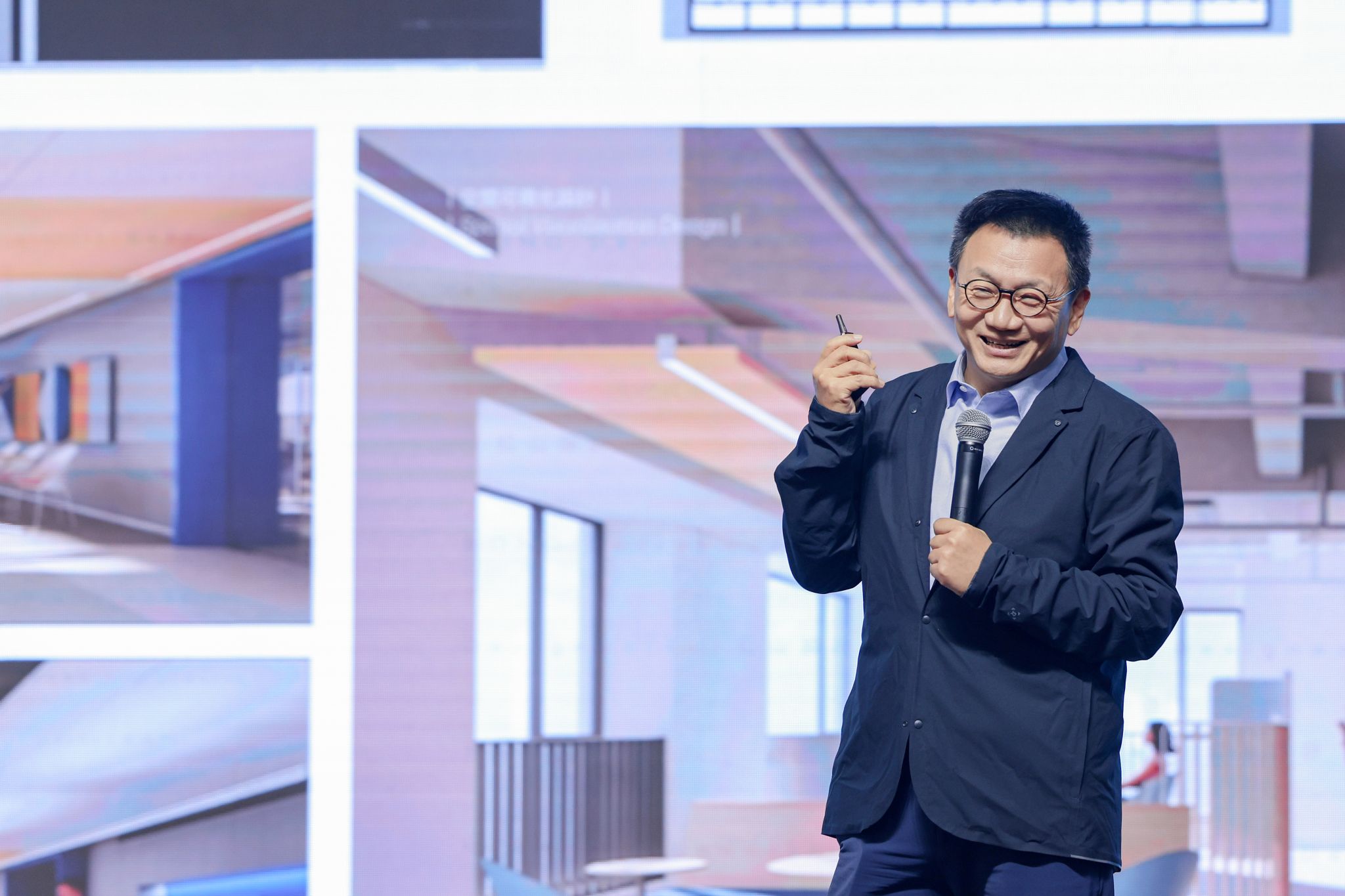
(Fig. 8) Professor Hu Jianbo, Chairman of Xi'an Eurasia University, Delivers a Keynote Report on "Marketing and Value, Innovation and Overcoming Barriers"
To become an innovative university, what should we do? Professor Hu Jianbo, Chairman of Xi'an Eurasia University, provided the answer in the report "Marketing and Value, Innovation and Overcoming Barriers." He pointed out, "An innovative university has a great path, with no fixed nature, starting with vision, starting with action, and growing vigorously." "Innovation" is the innate organizational gene of Xi'an Eurasia University, a solidly built educational foundation, and a powerful tool for winning the future. The university should innovate from aspects such as internal prosperity, external contribution, process improvement, organizational development, discipline construction, and teaching reform, turning our internal prosperity into external contributions to "provide education satisfactory to the people."
From the perspective of independent operations, he put forward an interpretation of the "Year of Marketing and Innovation": "Marketing" is not only about creating value externally and achieving a fee-free model but also about realizing personal value and decentralization. On the innovation platform of Xi'an Eurasia University, it is essential to leverage the primary role of universal compliance and innovation. This involves focusing on customer demands and creating customer value, while also enhancing organizational awareness, strengthening resilience, and boosting the ability to withstand and recover from risks.
In 2025, Xi'an Eurasia University will continue to uphold the spirit of innovation, openness, and inclusiveness. Guided by the concept of value-oriented education and the "employer-oriented and student-centered" educational philosophy, the university will persist in educational and teaching reforms, improve internal management, and continuously explore new boundaries in education. It will adopt a more outstanding posture, based on the new norms of regional economic and social development, and align with the trends of digitalization and intelligent technology development. Through restructuring, building platforms, creating carriers, and establishing mechanisms, it will deeply integrate with regional economic and social development. The university aims to continuously enhance its social service capabilities and organizational innovation vitality, cultivating more outstanding talent with innovative spirit and practical abilities, and contribute to exploring the establishment of an innovative university.





